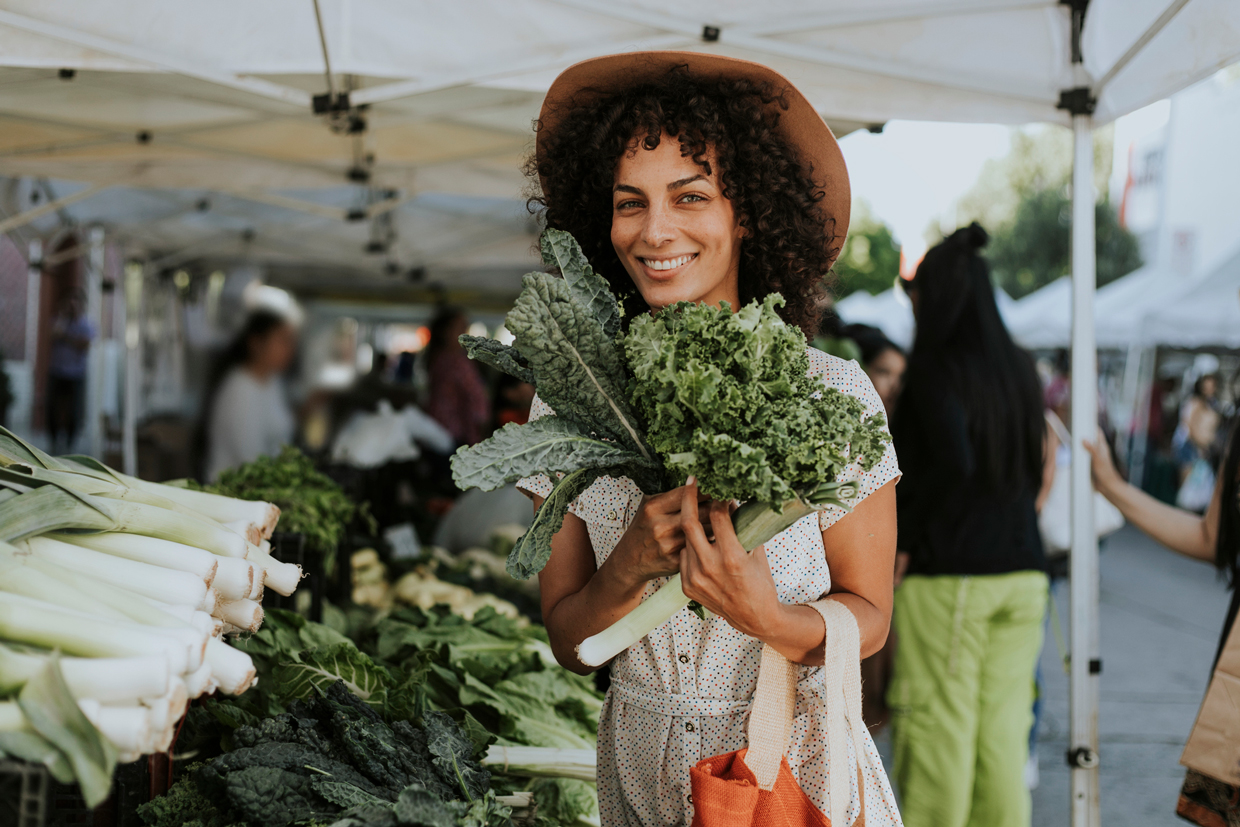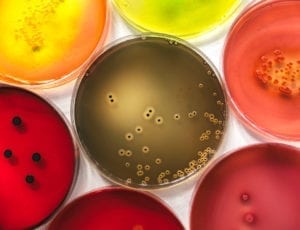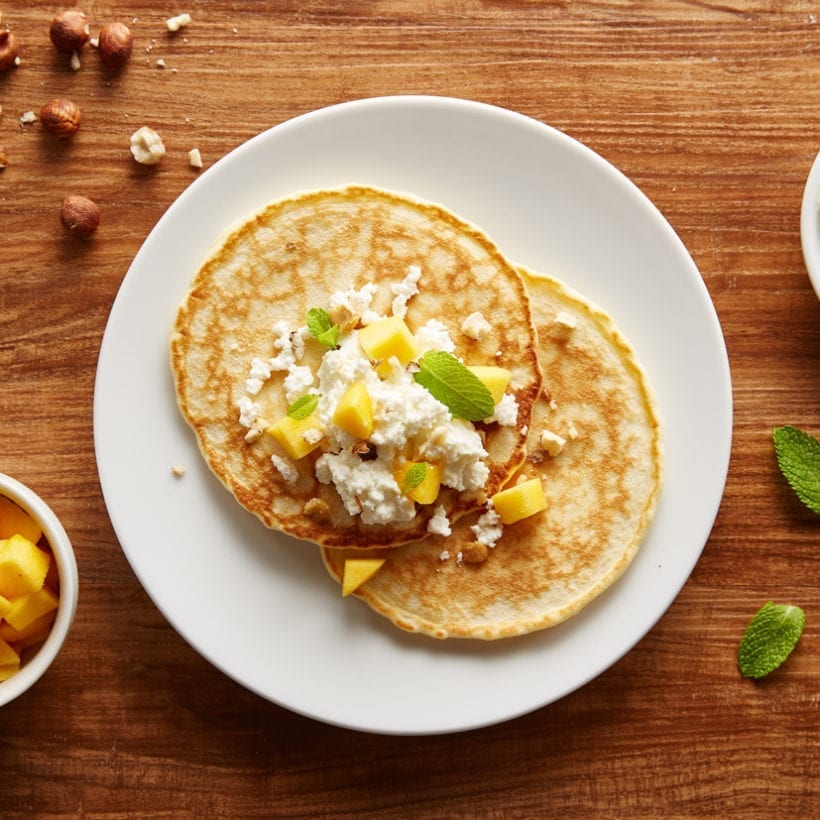Most of us are aware of the link between the food we eat and the way we look and feel physically, as well as the direct correlation between unhealthy foods and a myriad of chronic diseases, from high blood pressure and diabetes to heart disease and even cancer. However, when it comes to the ways in which food affects our minds, most of us are in the dark.
In fact, the field of study currently being called “nutritional psychiatry,” which looks at how the food we eat impacts us on an emotional scale, is relatively new and starting to gain traction. An April 2019 review published in the International Journal of Preventive Medicine, which looked at 56 studies, found a link between a nutrient-rich diet and a reduced risk of depression in adolescence. A separate 2019 study published in Nutrients found a link between a diet high in saturated fats and sugars and anxiety and depression.
The field of study currently being called “nutritional psychiatry,” which looks at how the food we eat impacts us on an emotional scale, is relatively new and starting to gain traction.
These findings are monumental, especially considering the fact that depression rates in the U.S. have tripled since the onset of the pandemic, per new research from Boston University School of Public Health. The concept that food can be a catalyst for enhancing mental health and wellness is quite promising for the estimated 19.34 million Americans suffering from depression.
“The body and brain have been treated as separate entities for far too long — almost as if the brain wasn’t in the body,” explains Carolyn Williams, Ph.D., RD, author of Meals that Heal and co-host of the Happy Eating podcast. “The influence and impact that diet has on the body are well-established, and this means that the food we eat also affects the brain, which controls our emotional health.”
Dr. Williams also points out the mind-gut connection — another area of research that is gaining momentum. “Approximately 80 to 90 percent of the serotonin (the hormone that impacts our mood and feelings of happiness) in the body is made in the gut, so any disruptions to the gut microbiome (caused by food, stress, medications, and lifestyle) can impact this production, as well as production of other compounds the brain needs,” she says. “Disruptions also make the gut more ‘leaky,’ allowing irritants like chemicals and toxins into the body which triggers low-grade inflammation that can aggravate mental health conditions like depression and anxiety.”
Whether you’re looking to relieve symptoms of depression or anxiety, or simply hoping to boost your health and wellbeing from the inside out, here are some of the best foods out there to enhance your mental health, according to experts.
Salmon
This pink fish is one of the most popular seafood items out there—and for good reason. It’s chock full of healthy, omega-3 fatty acids — namely docosahexaenoic acid (DHA) and eicosatetraenoic acid (EPA) — which have been linked to brain health, per research published in the journal CNS & Neurological Disorders. Another review published in Prostaglandins Leukot Essent Fatty Acids demonstrated how omega 3-rich foods like salmon can also help regulate neurotransmitters in the brain, like dopamine and serotonin, that help keep depressive and anxious feelings at bay.
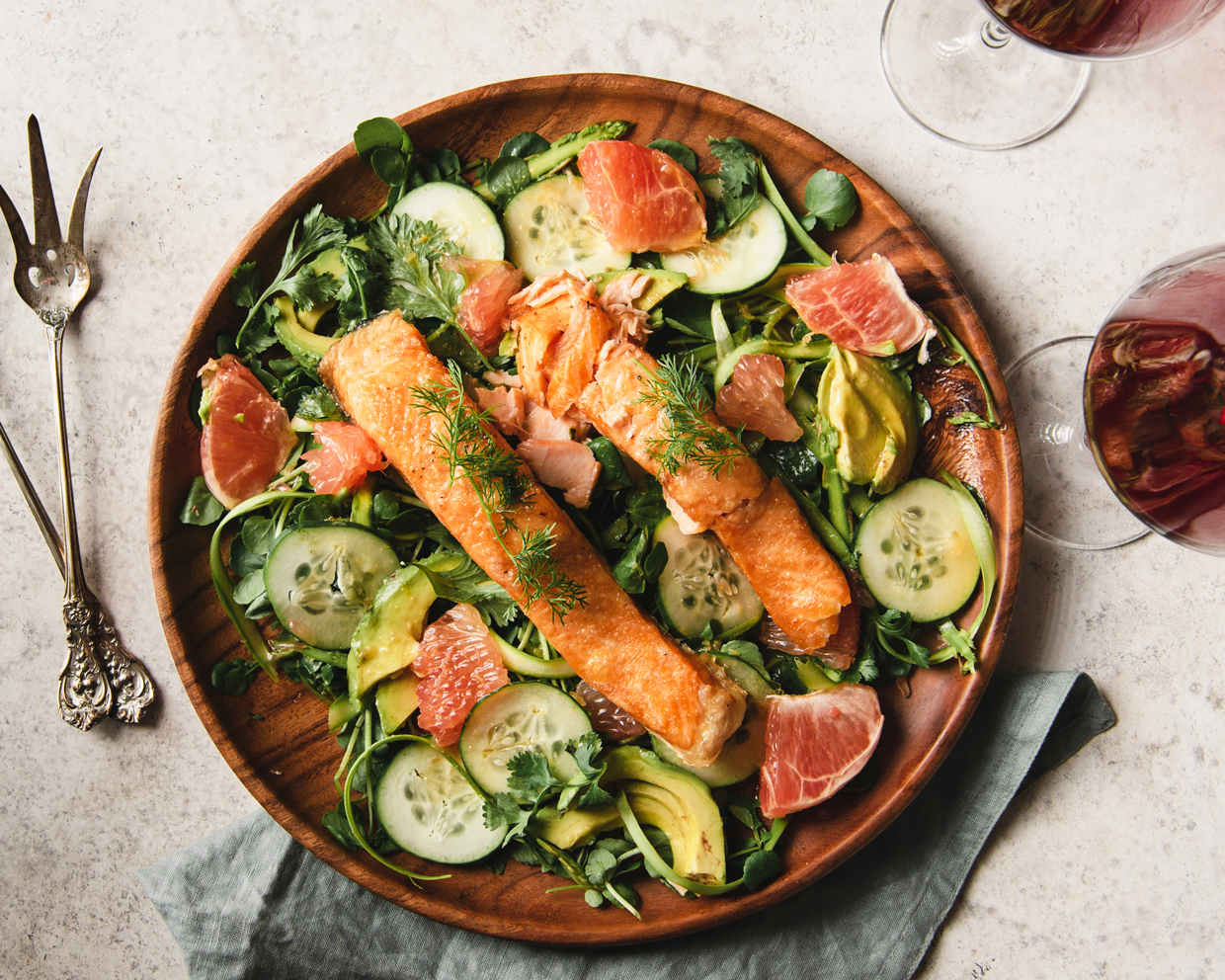
Chia Seeds
Not a fan of fish — or on a plant-based diet? You can still get your fair share of omega-3 fatty acids from a myriad of different plant sources, including chia seeds. Small, but mighty, these tiny brown seeds have been shown to help boost your bone health, manage blood sugar levels, and enhance your brain health. What’s more: Plant omega-3s, also known as alpha-linolenic acid (ALA), has been linked with reduced inflammation as well as reduced depression and age-related dementia, notes Sharon Palmer, RD, The Plant-Powered Dietitian and author of Plant-Powered for Life. She recommends sprinkling some chia seeds into your morning cereal and smoothie, so it becomes a regular habit. You’ll hardly notice the taste, but you’ll score some major brain-boosting benefits.
Leafy Green Vegetables
Chances are, you know how important it is to fit vegetables, especially the leafy, green kind, into your diet. Not only are such veggies, including kale, spinach, collard greens, and cabbage, beneficial for fighting a myriad of diseases, including heart disease, obesity, and even cancer, but they can also help fight inflammation, which has been directly linked to depression. In fact, one study published in the journal The Lancet Psychiatry, which analyzed the PET scans of patients with depression and a control group of healthy patients, found a 29 to 33 percent increase in brain inflammation in the depressive set. Palmer recommends trying to include a dark leafy green — kale, romaine, spinach, chard, bok choy — in your meals at least a few times per week in smoothies, salads, casseroles, soups, stews, and pasta dishes.
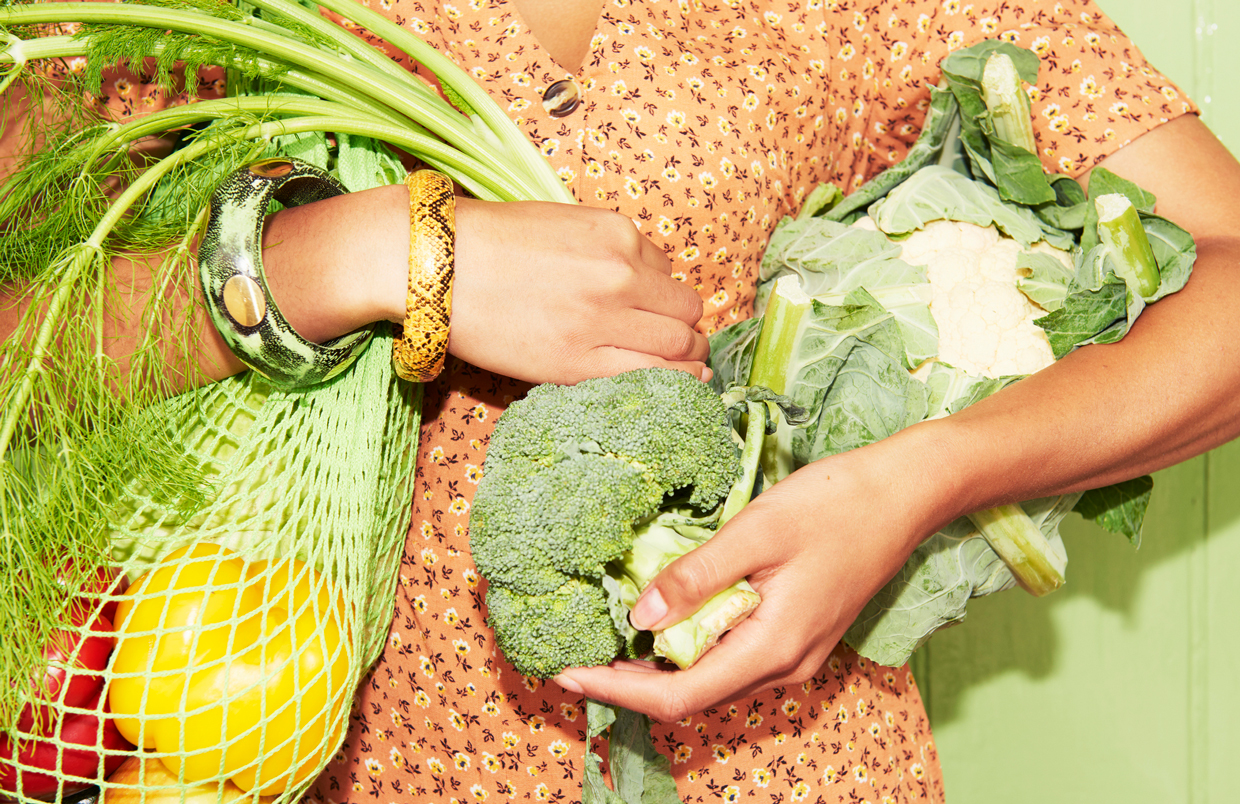
Fermented Foods
As it turns out, the benefits of consuming fermented foods such as yogurt, kombucha, kefir, kimchi, and cottage cheese, extend far beyond the gut-boosting effects. In fact, these foods may also prove to be helpful in preventing and reducing the risk of depression. One study published in the journal Nutrition found that the probiotic content found in these fermented foods was found to lower the risk of depression in self-reported diagnoses. This is huge, since eating a diet rich in fermented foods is relatively easy for most people. While there’s no official recommendation for how much, or how often, one should consume fermented foods, Palmer recommends aiming for two to three servings each day to score the mental health benefits.
Berries
“Berries have potent antioxidant compounds linked with their brilliant colors — these have been associated with improved brain health and reduced risks of dementia and depression,” says Palmer. One study published in the journal Neural Regeneration Research found that berries are capable of reducing inflammation in the brain, which has been linked to an overall reduction in depression. Palmer suggests trying to include berries — fresh, frozen, or dried — in your diet daily, adding them to a morning cereal bowl or smoothie, or enjoying them as a snack or dessert.
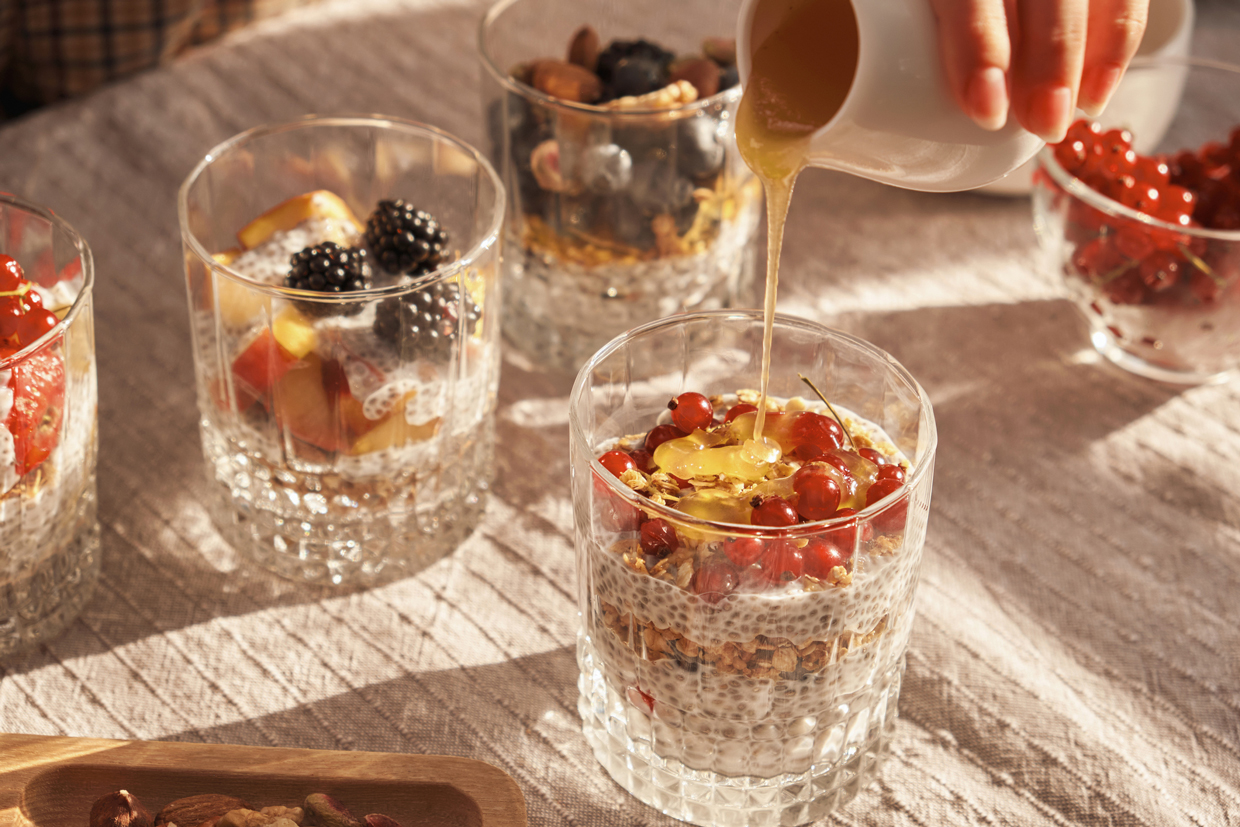
We only recommend products we have independently researched, tested, and loved. If you purchase a product found through our links, Sunday Edit may earn an affiliate commission.
